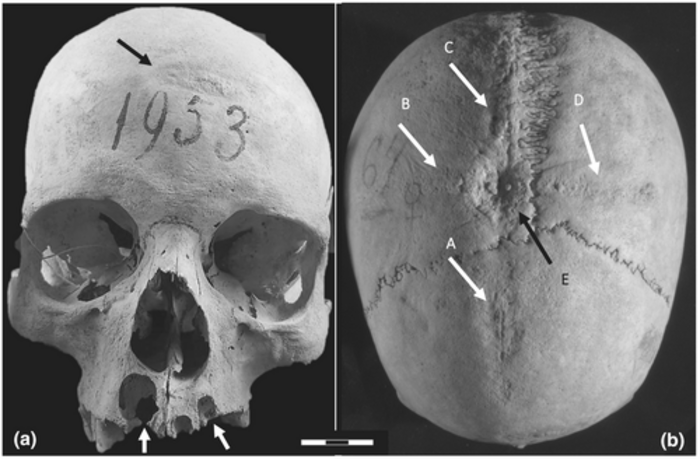The skull of a woman who lived in Italy in the Middle Ages shows signs of the first ever discovered case of cranial surgery.
The remains were found in the cemetery of Castel Trosino, near Ascoli Piceno, and were analyzed by an international group of researchers coordinated by the Sapienza University of Rome, together with the British University of Cambridge, the Spanish University of Zaragoza, the French National Center for Scientific Research (Cnrs) and with the contribution of the Catholic University of the Sacred Heart of Milan, which published the results in the International Journal of Osteoarchaeology.
The woman, who lived during the reign of the Lombards, between 568 and 774 AD, underwent at least two operations, the last one shortly before her death.
The researchers led by Ileana Micarelli of the University of Cambridge, a former post-doc at Sapienza University, studied the woman's skull revealing the signs of at least two surgeries, including one in the shape of a cross.
Furthermore, thanks to the application of a new high-resolution biochemical investigation method applied to one of the teeth, they were also able to reconstruct changes in the woman's diet and movements, from the first years of life to adulthood, highlighting the treatments that they were provided to her by the community.
"The last surgery seems to have taken place shortly before death," says Giorgio Manzi of Sapienza, who coordinated the study.
“There are no injuries that could suggest the presence of trauma, tumors, congenital diseases or other pathologies.
It is intriguing to consider the possibility of a ritual or judicial reason for these interventions - adds Manzi - but at the moment we have no evidence to support this hypothesis".






